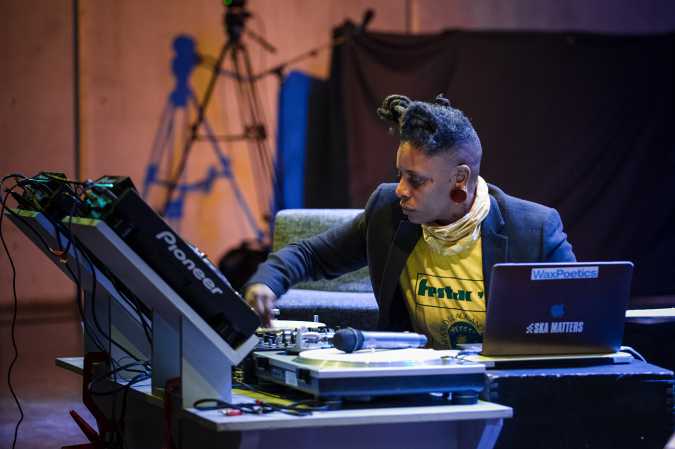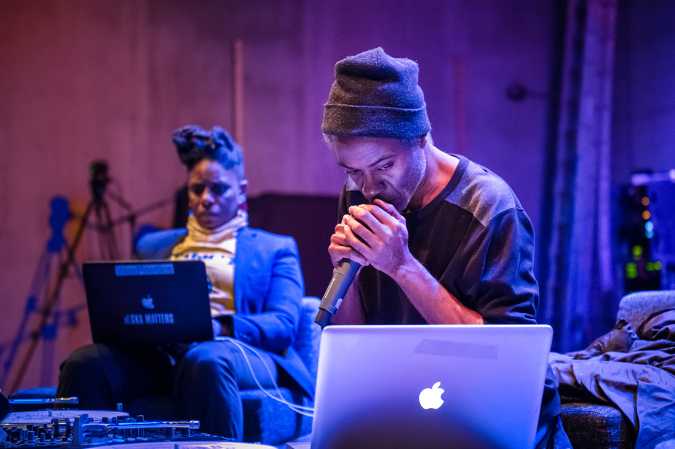There is a location for all of us . . . (2022)
Spectral Infrastructure: Unhoused Music
Musical selections and conversation with Dhanveer Singh Brar and Paul Rekret
In this session Dhanveer Singh Brar and Paul Rekret are asked to pick a piece of music in response to a set of remarks that theorist Cedric J. Robinson made in 1996 about C. L. R. James’s conceptualization of place and location—as seen in the quote above. The conversation explores the contact zone of connections between the recent works: Jazz as Critique: Adorno and Black Expression Revisited (2018) by Fumi Okiji; All Incomplete (2021) by Stefano Harney and Fred Moten; Teklife, Ghettoville, Eski: The Sonic Ecologies of Black Music in the Early 21st Century (2021) by Dhanveer Singh Brar; and Take This Hammer (2023) by Paul Rekret.
Spectral Infrastructure: Unhoused Music
Unhoused Music is a strand of conversations and music as part of Spectral Infrastructure, a collaborative project between BAK & Le Guess Who?
The relationship between the sound of music and a sense of place is sometimes so direct that it appears almost intuitive. The relationship between jazz and New Orleans, dub and Kingston, house and Chicago, and techno and Detroit, for example, seem to suggest that music is another kind of urbanism—a different way in which the city inhabits us. But how do we square that with the proposition that if Black music is, as author Fumi Okiji says, a particular kind of dwelling, it is both a refuge for the homeless and a tradition of criticism whose radicality resides in the fact that the idea of home ownership was always a trap? Across a sequence of three conversations and various selections of music, we will consider the ongoing work of Black music, and how it temporally rearranges the collective desire for space, place, home and land—generating a very different sense of social ecology, urban planning, and historical time.
Exhibition: The Hauntologists
At present, many find themselves haunted by the persisting brokenness of the world—inequality, war, racial and gendered violence, precarity, techno-colonialism, and other perpetual crises. Can one haunt back to intervene and redress this ongoing sense of dread? Could spectrality be embraced as an embodied cultural and political sensibility to experiment with? Can research be practiced as a haunting to overcome the limits of traditional categories of knowledge, knowledge production, and so-called artistic research?
"The Hauntologists" is a project emerging from within the 2021/2022 BAK Fellowship for Situated Practice. From 10-13 November, you'll receive free entrance at the exhibition on presentation of your festival wristband (day ticket and passe-partout).

